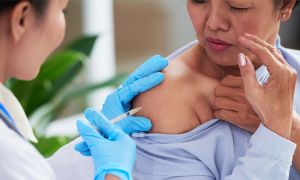Advertisement
I would not be concerned. There are times when a child may get an extra vaccine dose. For example, sometimes it is not clear what vaccines a child may have gotten in the past. In that case, vaccinating the child to make sure he or she is fully protected far outweighs any risk of side effects.
Your son may have experienced redness, swelling, or soreness after these extra shots. But, children who get extra doses of any vaccine are, for the most part, at no extra risk than children who follow the regular schedule. All in all, the end result should only be more of a boost to his immune system.
Extra doses really are "extra" doses. They do not count as part of the regular schedule. Your son is likely to still need the next doses of these same vaccines given at their usual times.
Your son may have experienced redness, swelling, or soreness after these extra shots. But, children who get extra doses of any vaccine are, for the most part, at no extra risk than children who follow the regular schedule. All in all, the end result should only be more of a boost to his immune system.
Extra doses really are "extra" doses. They do not count as part of the regular schedule. Your son is likely to still need the next doses of these same vaccines given at their usual times.

More About this Book
Harvard Medical School The Truth About Your Immune System
Can you boost immunity? Will vitamins, herbs, or probiotics help your immune system fight off disease? What about diet and exercise? Your immune system is your most powerful protector but don't fall...
Continue Learning about Vaccine
Important: This content reflects information from various individuals and organizations and may offer alternative or opposing points of view. It should not be used for medical advice, diagnosis or treatment. As always, you should consult with your healthcare provider about your specific health needs.



